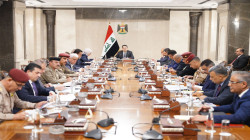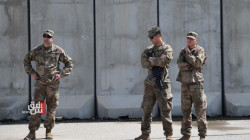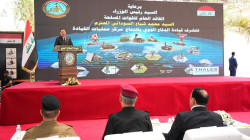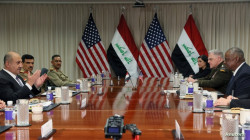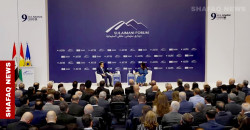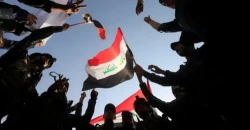Iraq delays end of Global Coalition mission amid regional tensions

Shafaq News/ Following mounting pressure from armed factions in Iraq, Baghdad announced, on Thursday, a delay in ending the Global Coalition Mission, citing recent unspecified developments.
According to a report by Sky News Arabia, the Iraqi Foreign Ministry confirmed that the "US-Iraqi High Military Committee," which includes officials from both countries, had discussed the details of withdrawing advisors from military sites. The committee's recent work has focused on assessing the threat posed by ISIS to set a final deadline for ending Operation Inherent Resolve.
This decision comes amid a tense regional situation and concerns about escalation in light of Iranian threats to respond to the assassination of Hamas leader Ismail Haniyeh.
While some observers believe it is time for the Coalition to leave Iraq, others stress the need for maintaining the "American security presence" to prevent potential threats to state stability.
Political and strategic expert Maan al-Jubouri emphasized the urgent need for international cooperation in Iraq to provide logistical support, advisory services, training, and armament.
Al-Jubouri added that "the Iraqi government could have requested the withdrawal of foreign forces over a year ago, but the pressing need for these forces has delayed this decision." He explained that Iraq, which is a victim of regional conflict, requires international support to achieve societal peace and strengthen its armed forces.
He noted that "the Iraqi government is currently in a difficult position concerning the operations conducted by the Global Coalition within Iraqi territory, as well as in light of Baghdad's commitment to controlling the loose weapons in the hands of factions conducting attacks both inside and outside Iraq."
On the other hand, political writer and researcher Wael al-Rikabi stated that the Shiite factions uniformly oppose the US presence in Iraq due to repeated attacks by Washington on Popular Mobilization Forces (PMF) leaders, which he argues infringes on state sovereignty.
Al-Rikabi said that despite this stance, the Iraqi government can negotiate such issues with the participation of "Coordination Framework" leaders who can exert pressure on certain faction leaders during sensitive situations.
He noted that attacks on US bases by Iraqi armed factions are reactions to US strikes against their leaders or members, as well as responses to US support for Israel.
Al-Rikabi concluded, "Should Washington decide to halt its support for Israel or set a timeline for ending the presence of foreign troops in Iraq, the situation within the Iraqi factions will likely become more stable."
